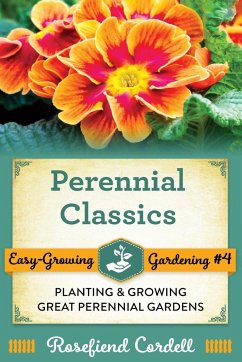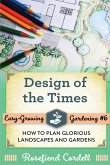A Garden is Never Finished - It Simply Evolves The problem with gardening (or, the very interesting thing about gardening) is that you are dealing with living beings. Obviously these living beings can't communicate in the way we think of communication, and they can't run away or swat the trowel out of your hand when you dig too close to their roots. Nevertheless, plants are living beings, which means they have certain whims and they definitely have ideas of their own, and they most assuredly will do their own thing. So bear this in mind when you plant what you expect is a perfect border and then the plants all sit there and make faces at you (metaphorically speaking, of course). A garden is never finished -it keeps evolving. The short-lived plants will die out and be replaced, some plants get divided or moved around; new plants and fashions will come and go, or you'll run across some new varieties that you have to try. At any rate, the garden always changes. Even if you make a lovely plan on paper, it's still a rough draft. The garden is the final copy. ... though, in truth, you can never say that "the garden is the final copy" because the garden itself keeps evolving as well. Even if you never add anything else to the garden, the plants themselves will keep growing and blooming (or die), and some will reseed themselves with a vengeance. Of course the weeds will have their day whether you want them to or not. So even if you do nothing but maintain a garden, it will keep changing - will never be the same from one year to the next. And besides, perennials are always moveable. If you find they don't work in one location, then dig them up and move them to a new place. Divide some of them and share 'em with your grandma, or your gardening buddies. I just said "perennials are moveable," but as always, the rule has exceptions. Plants with long taproots, like gas plant (Dictamnus) and indigo (Baptisia) aren't very happy about being moved, and will mope when you transplant them. On the whole, however, perennials are fairly cool about being dug up and moved around. Plants are generally tougher than you think they are. And if they do croak, well, get one that's tougher. My motto as horticulturist was, "If it doesn't want to grow, well, then, it can just go away someplace and wilt." I didn't have time to baby my plants. They had to take care of themselves. You figure out pretty quickly what plants are tough and what plants are wimps. Fortunately, there are a ton of very good, easy-growing plants out there.








